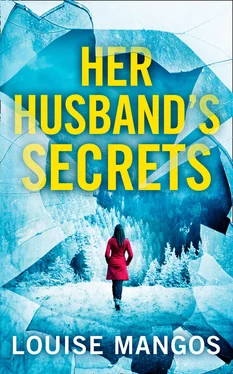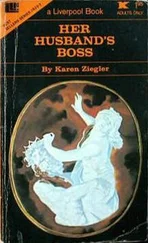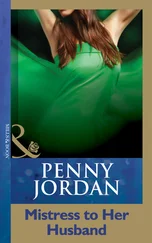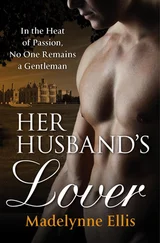I ran my hands lightly over his broad shoulders. He leaned forward slightly, a small shrug away from my fingers.
‘No, you will not draw me, Lucille. No drawings of me.’
I frowned. His sudden mood change confused me.
‘Okay,’ I said slowly. ‘No sketching. But it’s what I love to do, to express my appreciation of perfect form.’
I laughed playfully and trailed a finger down his bicep, but he didn’t smile. Face still turned away, a muscle ticked at his jaw.
‘Stick to drawing that,’ he said, pointing at the view. ‘Landscapes, mountain scenes. Let’s not talk about painting any more,’ he said abruptly.
Anger flared briefly, eclipsing the hurt at his initial shunning of my touch. I realised he’d never really asked me about my art.
‘But it’s what I love to do. You think cleaning toilets in a shitty hostel is enough to satisfy me?’
He turned to me, and in a flash, his dark demeanour changed to playfulness, with that hungry look in his eyes I recognised. My irritation softened, and I moulded my hands around the shoulders I had, moments before, imagined drawing. As he began removing articles of my clothing, I panicked. Ignoring any negative signals, I put my niggling angst down to worrying whether our situation on the footpath was too exposed.
* * *
A few days later a flyer appeared in Anne’s mailbox announcing a local art exhibition organised by a group of students at the international college. A series of personal interpretations of the modern masters would be on display. Intrigued, the two of us went along.
‘I’m not really a fan of modern art,’ she said as we walked past colourful renditions of Picasso, Kandinsky, Braque and Matisse. ‘But these are pretty good.’
‘Who’s in charge? Who’s their teacher?’ I asked, studying a bold still life, in acrylic greens and blues. ‘This is the kind of stuff I was doing at university. Hard to believe a little college in the Alps has students turning out this kind of work.’
‘That’s the professor over there.’
Anne pointed to a portly-looking gentleman at one end of the hall, his sparse white hair in disarray. He seemed a little awkward, seeking solace in a glass of wine the students were offering for their vernissage. He reminded me of an Oxford don, a tweedy mussed look. But nevertheless approachable. On the spur of the moment I introduced myself.
‘Patterson, Iain. How do you do?’
His boisterous handshake rattled the bones in my arm. I introduced myself, likened the work his students had exhibited to a project my class had participated in during my first year at university. It turned out we had a connection. One of my mentors at Leeds was an old colleague of his.
‘Haven’t heard from old Hibbert for a while. Multi-talented chap. Great artist, but also wrote some excellent plays in his time.’
The professor waffled on, his tone wavering somewhere between didactic and aristocratic. The plum in his mouth, rather than marking him as pompous, suited his eccentric demeanour. I didn’t want him to think I was another college dropout, but the association with my old professor made me wonder if I hadn’t done something unwise by giving up my studies in a subject where my skills truly lay.
‘So it must be half-term. You’ll be going back for the end of the semester soon, won’t you? Spring ball next month. Always a hoot.’
‘Actually, no … I’m not going back.’ Then thinking this sounded like I was a failure: ‘I’ve taken a break from my studies. I’m on a cultural tour of Europe.’
Patterson cocked an eyebrow, and changed the subject. He’d heard that one before.
‘What do your people do?’
It amused me to hear him refer to my parents in such an old-fashioned way, especially as my relationship with them was somewhat strained with my unexpected voyage to the continent.
‘My father is an ex-naval officer. My mother’s a nurse. She used to be an expat locum, Middle East mainly. I suspect I have a genetic predisposition for travel. Which is why I’ve … delayed my studies for a year,’ I said, twisting the truth.
‘Nothing wrong with a journey of self-discovery, throwing a few wild oats.’
I smiled, the misquoted idiom making him appear suddenly naive.
‘You should come and visit the studio sometime. Pop by next week – we won’t be too busy when this exhibition is out of the way.’
* * *
I wasted no time taking the professor up on his invitation. By the following week I hardly had two centimes to rub together. The few francs I had earned were long spent. I’d sold my Eurorail ticket to a departing backpacker when the hostel closed. But that money was rapidly running out, and Anne, although a generous hostess, must have been getting tired of my presence in her home. Her relationship with François was getting serious, and I could tell she wanted her space to herself.
‘I was Professor Hibbert’s assistant for a term in my first year,’ I told Iain Patterson when I visited his studio.
I was trying my best to both charm and maybe impress the old fellow.
‘A Hibbert protégé! I could do with an assistant in the studio. Are you looking for work?’
Yes, yes! I wanted to shout. Everything was falling conveniently into place.
Iain Patterson, self-professed artist and wine connoisseur, flaunted an ample belly upon which he would amusingly rest his brushes as he painted, tucked between the buttons of his brown smock. I had never seen anyone paint with so many brushes at once. He balanced the smaller ones over his ears. They even protruded from his mouth, a substitute for the tortoiseshell pipe his long-suffering wife insisted he smoke outside the studio, to avoid bringing home the cloying scent of Latakia smoke on his hair and clothes.
Patterson, as he preferred to be called, had enough seniority to secure me a job as his assistant, and although he was past retirement age, it was evident his teaching was highly valued.
I was unable to obtain official working papers, but the college secured me a study permit, to fool the authorities into thinking I was a full-time student. I was even able to earn one credit a term in Patterson’s classes, which marginally satisfied my parents’ concerns about taking up the reins of an education I had left behind in England. Although it was unlikely I would ever fulfil enough credit requirements for an undergraduate degree.
I soon blended into the village and local life, and after a slow start, learned to speak French. Not that it mattered in a resort where so many foreign tourists passed through, and given that non-language courses at the college were all taught in English.
Being seen at Matt’s side, a local boy, should have made me feel secure, knowing the authorities were always on the search for illegal workers without permits. The news about my semi-legal permit status quashed his hesitancy about me finding a job at the same college where he worked. And my love for him eclipsed the feeling of unease everyone else seemed to have when I was in his company.
* * *
We are sitting at a table in the cafeteria when Fatima comes in with Adnan bound to her in a perplexingly fashioned wrap, resembling a haphazardly knotted sari. She moves along the canteen counter, collects random items of food for her tray. As she comes to sit near us I wonder how she can place so many opposing food groups together on one plate. Perhaps she still has the disturbing gastronomic leanings of an expectant mother in her third trimester, and yearns for unidentified chemicals her body is missing. I vaguely remember a craving for horseradish and caramel fudge.
She starts plucking morsels off her tray and pops them into her mouth before she has even reached the table. She looks slightly manic. Adnan whimpers and squawks quietly in his sleep at her chest.
Читать дальше












